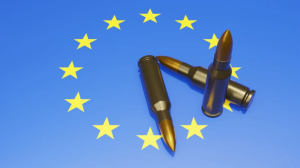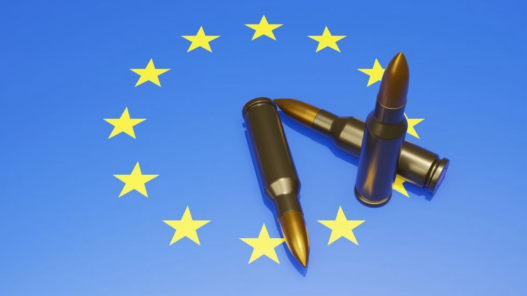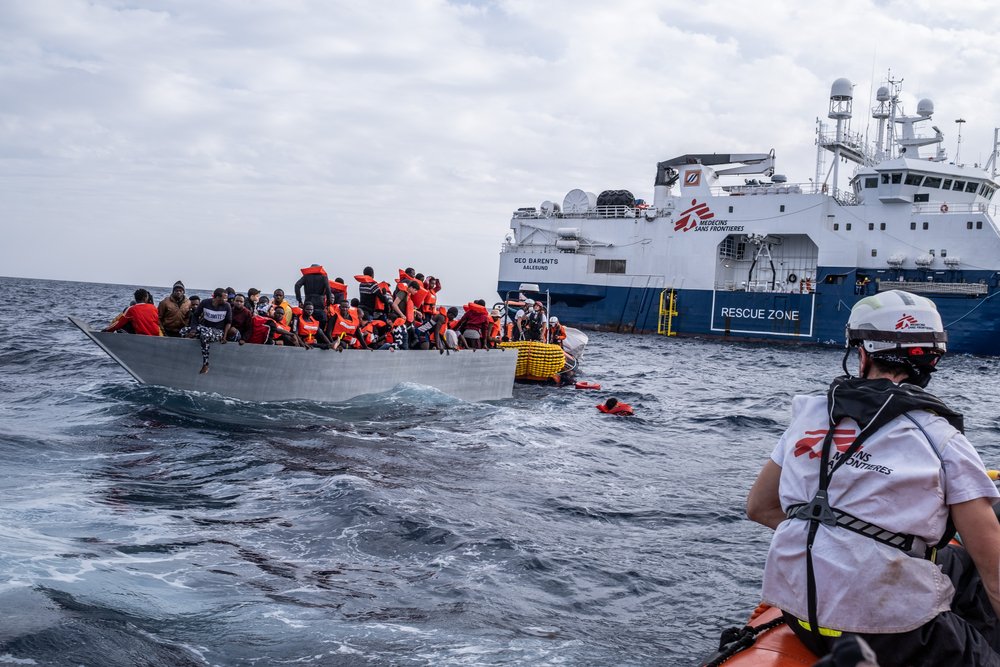
DOES A COMMON EUROPEAN DEFENSE POLICY HAVE A FUTURE?
By Antonio M. Figueras / Escudo Digital
The consolidation of Europe as a global player inevitably involves guaranteeing the strategic autonomy of the Union at a historic crossroads. The events on the planet have generated a less friendly world that provokes the need for a long-term strategic plan to forge an authentic energy policy that guarantees our autonomy and a renewed management of migratory flows. But it is undoubtedly in the face of Russia, China and the United States that we see the need for a common and differentiated voice, especially in the area of security.
There is an urgent need for a European Defense Strategy, starting with Russia. The European Union’s defense of Ukraine must be compatible with accepting Russia’s leading role on the international scene after the end of the war. Europe must know how to manage its relationship with Russia while maneuvering with the enlargement to Ukraine, Georgia and Moldova.
EXPERT STUDIES
These are some of the conclusions of the report A Spanish Vision of the EU: 2024-2029, a work of the Prestomedia Group, an exhaustive study carried out by experts in European politics and directed by Javier Elorza, Spain’s ambassador to the EU and Spain’s chief negotiator in EU treaties. Elorza, also author of the first chapter, ‘Issues of Institutional Governance’, addresses the institutional reforms needed in the face of EU enlargement, the importance of the move to qualified majority voting in key decisions and the urgency of peace in regions. The second part, a ‘Thematic and sectoral study’, coordinated by Francisco Fonseca, director of the Institute of European Studies of the University of Valladolid, addresses the importance of Spain in the future of Europe. The last part of the report, a Prospective Analysis, supervised by Mª Luisa Humanes, vice-rector of International Relations at the Rey Juan Carlos University, reveals the strong support of the Spanish population for greater European integration.
The study points out that with China we must build a relationship of partners and competitors, while the United States must remain a crucial ally, but with a more autonomous Europe, which must be seen as a necessary partner in global geostrategic challenges.
To become a credible actor “the Union should be able to ensure genuine political and diplomatic coordination”. Important steps have already been taken, such as the creation of the European External Action Service, but the coordination of European countries’ positions must be deepened. Above all, “in the framework of the United Nations Security Council, France as a permanent member and the other countries of the Union that are rotating members should ensure that they represent the Union in matters of common interest where there is a common position”.
GREATER COMMITMENT
The EU is on the road to further integration in defense and security matters and the eventual creation of a common defense based on Article 42 of the EU Treaty. In this scenario, EU countries would take on greater commitments regarding each other’s security: “The EU would support joint defense programs with the European Defense Fund and create a dedicated European Defense Agency. In this way, the creation of a real European defense market would also be encouraged.”
Among the proposed initiatives are the creation of an EU Rapid Deployment Capability of up to 5,000 military personnel for different types of crises by regularly conducting real exercises on land and at sea and increasing military mobility; to encourage its capabilities in intelligence analysis and against hybrid threats, setting an EU cyber defense policy to be better prepared and respond better to cyber-attacks; and to elaborate an EU space strategy for security and defense.
STRATEGIC COMPASS
The adoption of the Strategic Compass in 2022 has provided a comprehensive framework for EU security and defense policy. “Member States,” the report says, “have further committed to substantially increase their defense spending to match their collective ambition to reduce critical shortfalls in military and civilian capabilities and to strengthen the European defense technological and industrial base.
The European Peace Facility, adopted by the European Council in March 2021 with the threefold purpose of preventing conflict, building peace and strengthening international security, was set up for a total amount of 5 billion. Following the outbreak of war in Ukraine, the Facility was expanded to the current 12.04 billion.
The effort to strengthen the European defense industry has a process starting in 2017 with the PADR program: Preparatory Action on Defense Research, focused on priority dual-use research topics (drones, high-power lasers and mapping, multifunctional radio frequencies…), with interoperability as a target. It continued a year later with the European Defense Industrial Development Program (EDIDP). In 2020, the European Defense Fund (EDF) was launched. In 2022, an instrument to strengthen the European defense industry through joint procurement (EDIRPA) was created.
Specific purposes are increasingly being fine-tuned: “In 2023, the Commission presented a proposal for the establishment of Ammunition Production Support (ASAP), adopted by Regulation 2023/1525, endowed with 500 million to boost manufacturing capacities for the production of ground-to-ground and artillery ammunition as well as missiles in the form of grants to various types of actions contributing to the European defense industry’s efforts to increase its production capacities and address identified bottlenecks. In addition, access to finance will be facilitated for EU companies in the field of ammunition and missiles, through the Empowerment Fund aimed at facilitating access to both public and private capital for companies manufacturing ammunition and missiles across the value chain, in order to accelerate the investments needed to increase manufacturing capacity.”
The strategy is for at least 40% of defense equipment to be procured collaboratively by 2030; for the value of intra-EU defense trade to account for 35% of the value of the Union’s defense market; and for at least 50% of the defense procurement budget to be procured within the EU.
Because the common defense policy needs sufficient means to achieve a European industry that guarantees strategic autonomy, with a reinforced investment program and strategic public-private cooperation. From the institutional point of view, it would be advisable for the High Representative of the European Union to be the president of a Council of Defense Ministers, “with greater relevance and autonomy in coordinating a cluster of appropriate commissioners to be able to use all the instruments and policies necessary for the external security and defense of the Union”. And to play a more relevant role in NATO’s work.
THE QUESTIONING OF CERTAINTIES
The report includes the analysis Spain, at the forefront of the Europe of Defense, signed by the Spanish ambassador Nicolás Pascual de la Parte, where the consequences of the Russian aggression against Ukraine in the international order, the questioning of certainties, are unraveled.
“Since February 2022 – the ambassador points out – Europe has woken up to the harsh reality, never imagined: war has returned to Europe, threatening our freedoms and way of life, and we are not sufficiently prepared in any way to face it. It is therefore time to change political priorities and the direction of integration, starting with the urgent creation of an autonomous collective European defense capable of facing the Russian challenge and the threats of a neighborhood in crisis, even without Washington’s help. And all this by strengthening the transatlantic link and the capabilities of the Atlantic Alliance, the ultimate guarantee of European security”.
THE UNITED STATES AND NATO
It is clear that, in the short term, Europe cannot ensure its defense without the decisive support of the United States and NATO. Eighty percent of NATO’s defense budget comes from non-EU countries. The recent accession of Finland and Sweden underlines the importance of the transatlantic alliance for European security, but also highlights the need for Europe to strengthen its own pillar within NATO.
It is up to Europe, according to this analysis, to create a non-existent common security and defense culture in the respective European societies, to combine the different defense cultures of France and Germany, to jointly identify the threats to European security, to provide itself with the necessary means and resources, to develop an autonomous European industrial and technological base and to strengthen the mechanisms for consultation and cooperation with NATO.
And Spain will have to assume its role as a major player in the Europe of Defense, as Pascual de la Parte states: “Our national interest should revolve around five basic objectives: guaranteeing our territorial integrity, political sovereignty and strategic independence; contributing to the security of Europe; defending Western values by strengthening NATO; contributing to peace, stability and global development; and achieving the greatest economic, cultural and strategic projection of Spain in the world”.
SPAIN’S PRIORITIES
In this sense, Spain has four priorities to promote: to contribute to a greater extent than in the past to the defense of Ukraine, to strengthen the southern front, to commit to a more geopolitical Europe that seeks greater strategic autonomy and to design doctrines, strategic frameworks and operational plans.
The report A Spanish vision of the EU: 2024-2029 closes with the citizens’ perception of the role of our country: “Spain has already committed to increase defense spending to 2% of GDP, but it will have to step up efforts to increase the technological and industrial base of defense and civil-military collaboration. This could be an opportunity to advance national strategic autonomy. However, a public opinion not so favorable to the creation of a European army has to be taken into account at this point.”
————
This article was originally published in Escudo Digital, with whose permission we publish it here.



